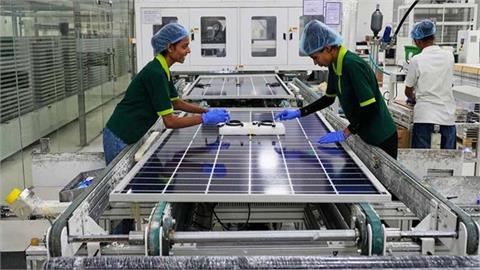All sectors of the global economy - energy, food and agriculture, industry, construction and transport, have the potential to halve greenhouse gas emissions by around 2030, according to a report released for the launch of the Global Climate Action Summit in San Francisco on Thursday.
Global solar and wind power capacity is at a fast enough speed to provide over 50 percent of global electricity supply by 2030, assuming the current pace is maintained and renewables replace fossil fuels, the report indicated. "Stronger policies, the digital revolution and greater climate leadership are necessary to accelerate the economic transformation," the report released by Christiana Figueres and global sustainability researcher Johan Rockstrom said.
- Digital revolution remains a wildcard
According to studies conducted for the report, technology can directly influence 30 percent of the emissions cuts needed by about 2030, and indirectly affect the rest through influencing consumer habits, scaling up a sharing economy and supporting business transformation to a circular economy. In line with the Paris Climate Agreement’s aim is for emissions to peak in 2020 and approximately halve by about 2030, the report said.
"Greenhouse gas emissions must fall sharply to stabilize climate well below 2 Celsius and aim for 1.5 Celsius as agreed by nations in Paris in 2015," the report highlighted.
According to the report, the authors argue that the digital revolution is already driving an economic transformation.
The roadmap identifies the accelerators in terms of climate leadership, policy and technology required to scale 30 solutions and concludes that a set of game-changing strategies in the next 18 months are needed to keep up an appropriately fast pace.
These strategies include:
- Accelerate climate leadership initiatives exponentially among companies, cities, industries and individuals to reach a critical mass with goals and actions to halve emissions fast.
- Create task forces to build momentum to end fossil-fuel subsidies, build out carbon pricing
- Launch global tech initiatives, or "accelerators” to align the Fourth Industrial Revolution (digitalization, artificial intelligence, cloud computing, internet of things, etc.) with the goal to halve global greenhouse gas emissions by 2030
(Anadolu Agency)



